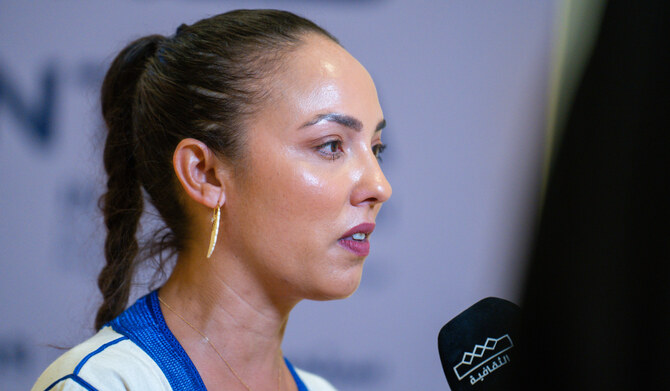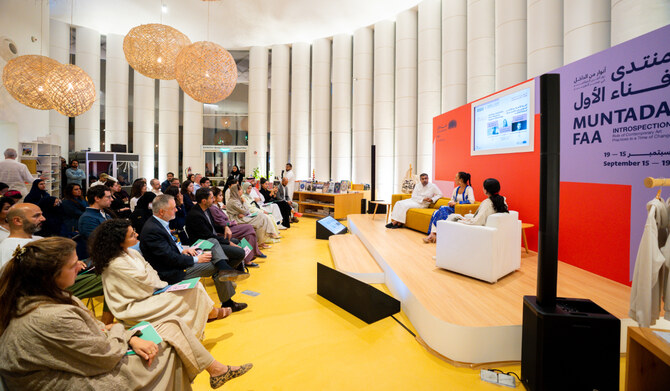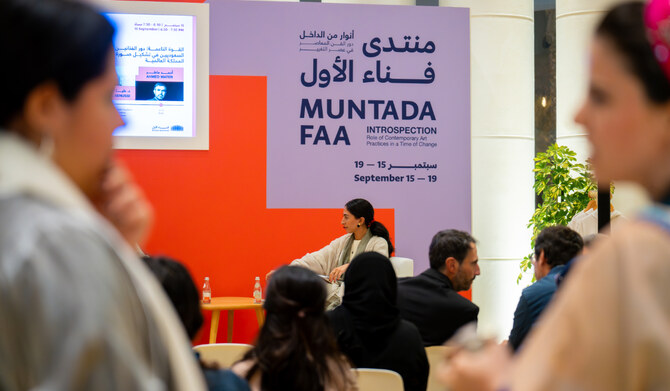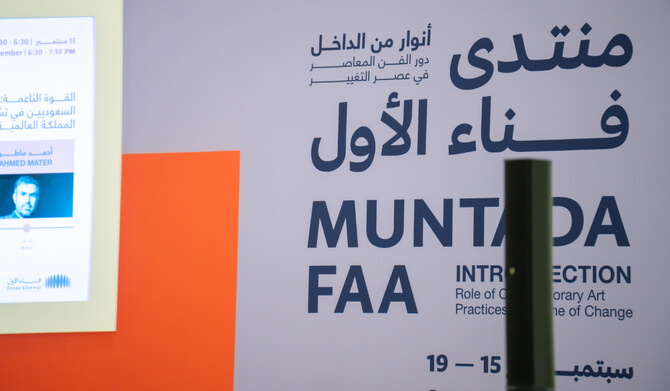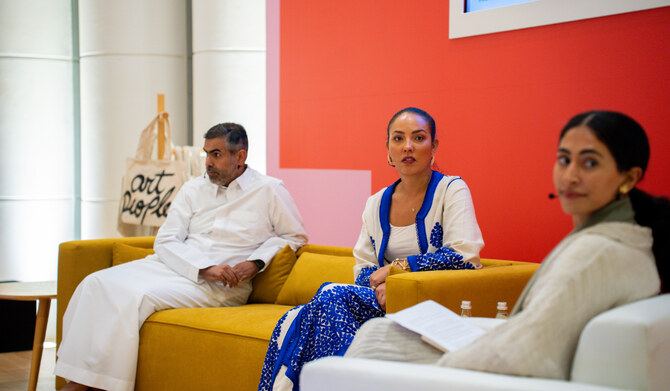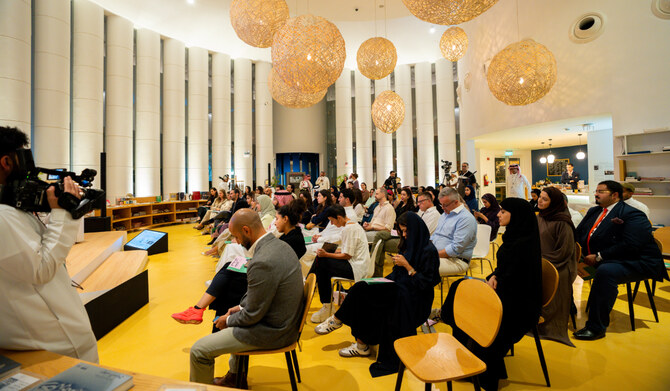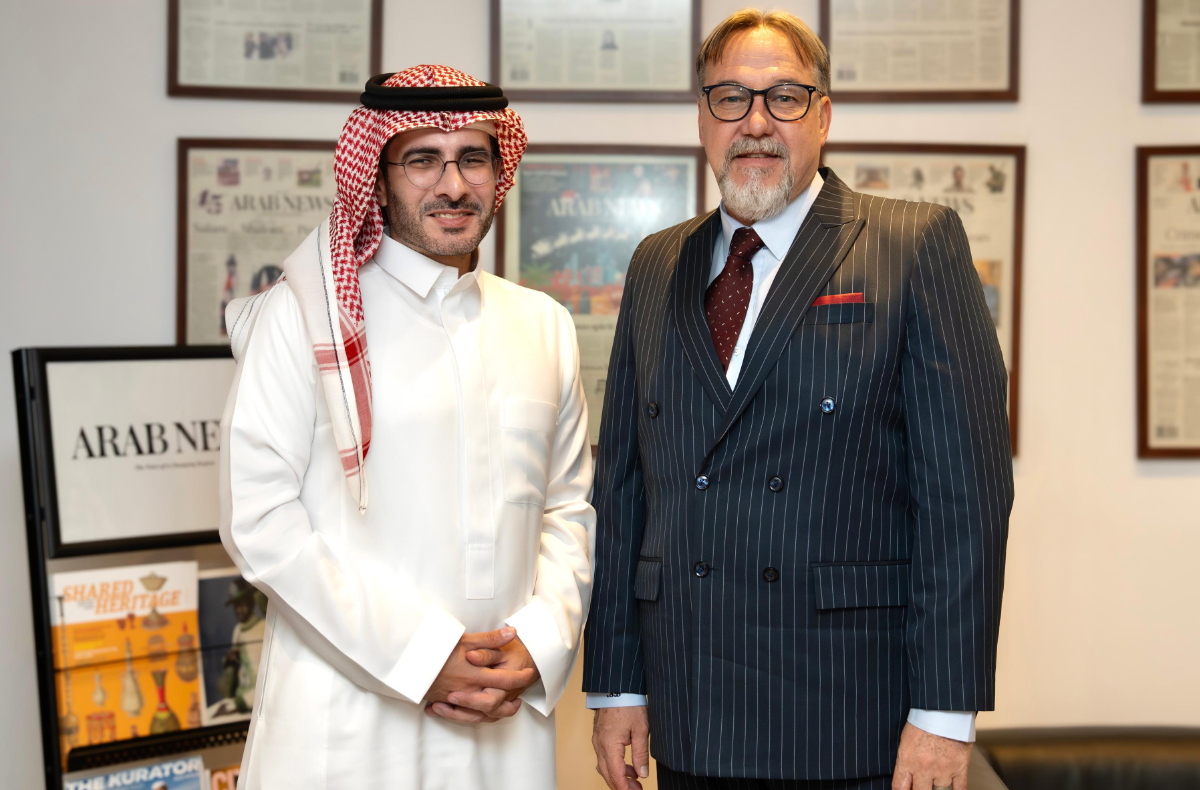RIYADH: A five-day cultural forum organized by Fenaa Alawwal in Riyadh’s Diplomatic Quarter, and co-curated by Afikra, is exploring the theme “Introspection: the role of contemporary art practices in a time of change.”
The inaugural Muntada Forum of Contemporary Art Practices opened on Sunday night and will have five panel discussions during its run until Sept. 19.
There are 24 creatives exploring a diverse range of topics, which includes the role of Saudi Arabia’s artists in shaping the Kingdom’s global image.
There will be discussions on Saudi Arabia’s youth culture involving music, street art and fashion; the role of art professionals: navigating creativity in a structural setup; cultural hubs: the emergence of urban art districts; and the intersection of food and art.
The bumper-to-bumper traffic in Riyadh was not a deterrent for art enthusiasts, curators and interested locals from attending the opening at the building built in 1988.
The venue was designed by Omrania architecture company, as a part of Alawwal Bank’s Riyadh branch in the landmark Diplomatic Quarter.
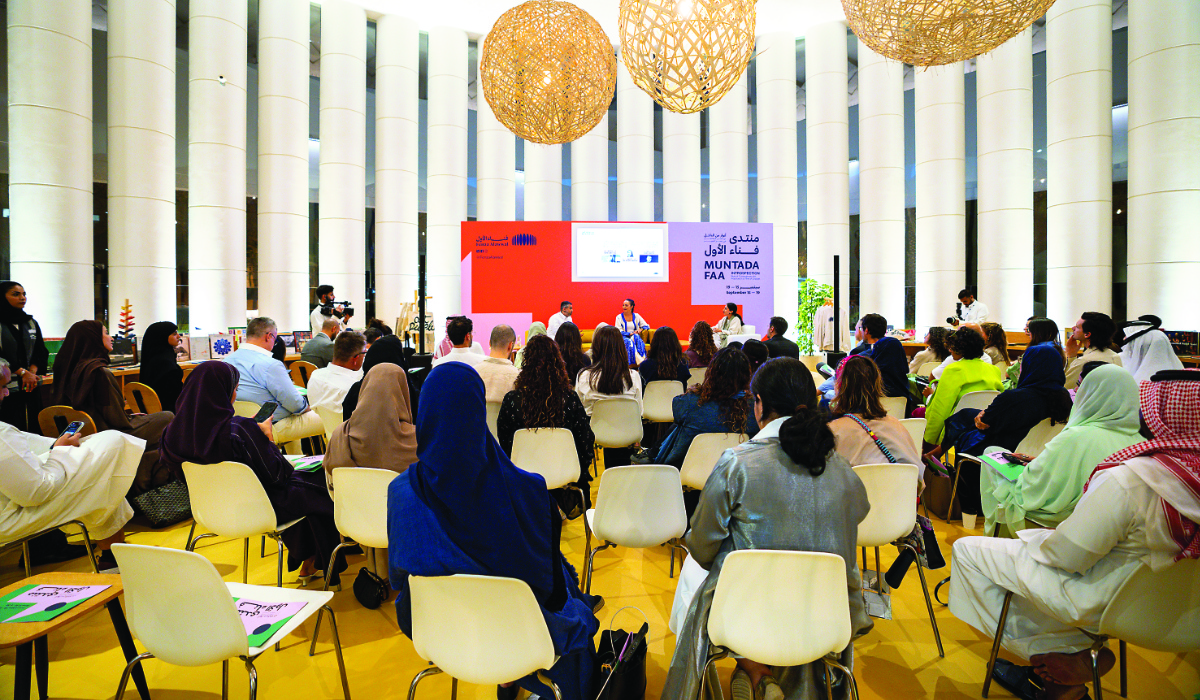
The forum includes discussions on Saudi Arabia’s youth culture involving music, street art and fashion. (AN photos by Abdulrhman Bin Shalhoub)
Every seat was occupied during the first panel which was titled “Soft power: Saudi artists’ role in shaping the Kingdom’s global image.”
It was moderated by curator Sara Al-Mutlaq with speakers, Ahmed Mater, a doctor-turned-artist, and Alia Al-Senussi, a cultural strategist, art patron and academic.
Al-Senussi told Arab News after the talk: “What we have really been able to embrace is the idea, (as) Ahmed Mater said, that it’s up to the artist to remove the power from the conversation.
HIGHLIGHTS
• The inaugural Muntada Forum of Contemporary Art Practices opened on Sunday night and will have five panel discussions during its run until Sept. 19.
• Muntada will conclude with a performance by culinary storyteller and social media sensation Nadir Nahdi.
• The first panel was titled ‘Soft power: Saudi artists’ role in shaping the Kingdom’s global image.’
“And soft power, in its kind of whole and holistic way, is really about translating who people are to the rest of the world.”
Mater, who is working on a new book slated for publication later this year, discussed how events over the past 45 years, starting with 1979 — his birth year — changed the course of the world, a topic which he will explore in his latest work.
He explained that each decade since 1979 has had events with major ramifications on the local and international fronts, which included the revolution in Iran and the seizure of Makkah.
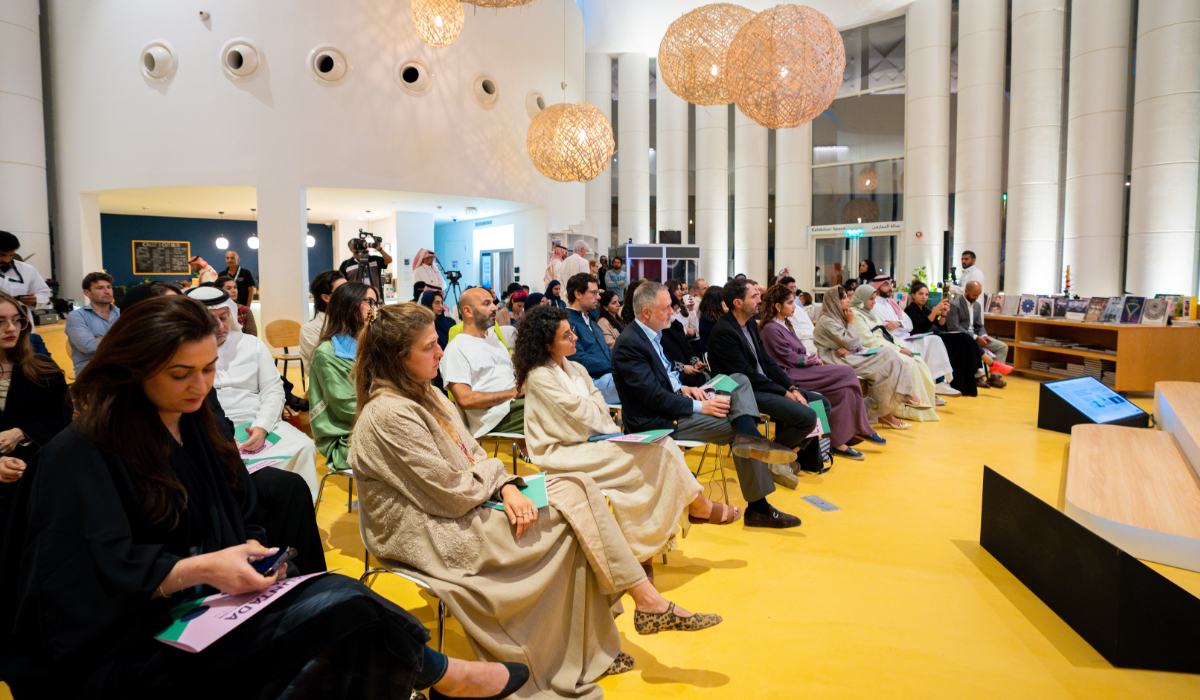
The venue is a part of Alawwal Bank's Riyadh branch in the landmark Diplomatic Quarter, designed by Omrania architecture. (AN photos by Abdulrhman Bin Shalhoub)
He also referred to events from the 1980s up to the present day, which include the Gulf War, 9/11, the Arab Spring and the rise of social media, as well as the COVID-19 pandemic.
“There was a big change happening in Saudi Arabia during these decades. I spoke about art as a mirror for sociopolitical events and the culture of changing and that’s what shapes our narrative, our story, our strength — by telling our story that shapes our life and our memory,” Mater told Arab News.
On opening night, curator Maya El-Khalil and Saudi Arabia artist Moath Alofi offered their insights in their keynote speeches.
Other speakers to come include Hala Al-Hedeithy from the Music Commission, Gigi Arabia, the founding director of Heavy Arabia; Nada Al-Helabi from MDLBEAST; and Mikey Muhanna, the founder and executive director of Afikra.
Other participants include Lulwah Al-Homoud, curator and artist; Oliver Farrell from Misk Art; Mayada Badr, CEO of the Culinary Arts Commission; and Sybel Vazquez from the Diriyah Biennale Foundation.
There will also be a kitchen lab dedicated to speaking about and celebrating all things food, hosted by celebrity chef Joe Barza.
Muntada will conclude with a performance by culinary storyteller and social media sensation Nadir Nahdi.



